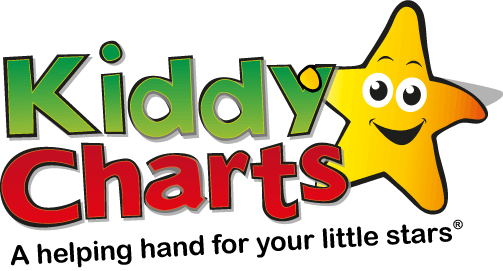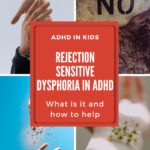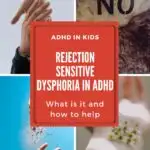We have another article from Sarah Templeton today, ADHD counsellor/ campaigner, and owner of Headstuff ADHD Therapy. Today we are exploring Rejection Sensitive Dysphoria with her, and in RSD ADHD how it presents within children. Sarah says that although there are lots of wonderful things about having Attention Deficit Hyperactivity Disorder , and in her opinion, usually far more positives than negatives, one of the aspects most ADHD people would give away in a heartbeat though, is called Rejection Sensitive Dysphoria or RSD for short. RSD effects emotional responses for those with ADHD, which is now understood not be one of the mental health conditions, like bipolar disorder, bit a neurodevelopment disorder, now termed a neurodevelopmental condition, within the statistical manual of mental disorders (DSM-V) in the US. RSD is not an official diagnosis though, it is a presentation that occurs within ADHD, and other neurodevelopmental conditions.


What is Rejection Sensitive Dysphoria (RSD)
Broken down, we all know what rejection feels like. Being super sensitive to it and dysphoria literally means ‘hard to bear’ in Greek. So for children and adults with ADHD – RSD literally means that rejection can be incredibly hard to bear. Sometimes too hard, creating an extreme emotional sensitivity to it.
Before I was diagnosed with ADHD, I knew I just couldn’t take rejection. Unlike other people who I now know were neurotypical, I wasn’t able to brush off or rise above rejection, criticism and particularly humiliation.
All of them seemed absolutely unbearable to me. They almost caused a physical pain which I described as ‘little daggers’. This is a common reaction to rejection for those with symptoms of RSD, And it cannot be underestimated how intense emotions are for those that experience it. Emotional regulation is tough anyway for ADHDers, but add to this the extreme fear of rejection and you sometimes get extreme emotional response reactions to rejections; either real or otherwise. This can make social interactions problematic generating negative emotions from them, and a feeling of peer rejection. These feelings can be real, and present even if the intention of those peers is not rejection. It is important that any mental health professionals that come into contact with ADHD children understand that rejection can cause emotional outbursts if rejection-sensitive dysphoria is present.


My own adult ADHD diagnosis explained how I had been so overly sensitive whenever being put down, told off, taking the Mickey out of or anything else where I felt I wasn’t good enough. The pain at times was almost unbearable, adding to the overall ADHD struggle, with the RSD symptoms creating strong emotional reactions.
For example in initial relationships you need to look out for this when your children are young and start falling in love or getting crushes for the first time. If the worst should happen and their young girlfriend or boyfriend decides to end the relationship, you can be very sure that your child is going to feel extreme Rejection Sensitivity Dysphoria (RSD) as part of their ADHD symptoms.
How to help children with RSD


RSD crops up in loads of other areas, from relationships to school, and can even be a part of the reason for social anxiety and social phobia, and I strongly suggest you explain what RSD is to your children as soon as they are old enough. An understanding of the sense of rejection that can occur for those with Attention-Deficit Hyperactivity Disorder from the important people and the key family member in a child’s life can help improve a child emotional experience of RSD. Obviously individual experiences of RSD are different. And you might want to consider your own social situations, so whether you tell your ADHDer can depend on the maturity of the child. Often from around the age of eight or nine, they are old enough to understand that their wonderful ADHD brain has some different ways of working. One of these is that they will find rejection, humiliation and criticism extremely hurtful, creating an overwhelming emotional response.
If they know this, when it happens, it will be far less painful, and they will be aware that it is their own brain making them take things in a much more personal and painful way. It can be a realisation for some that it is part of the ADHD experience, and not their “fault”; helping to navigate this type of emotional dysregulation a little more easily.
It’s well worth mentioning this aspect of ADHD to your child’s teachers. I can almost guarantee they won’t be aware of rejection sensitive dysphoria, and how sensitive your own child will be to any sort of rejection, criticism or humiliation. Explain how they even talk to an ADHD child can cause RSD. If they shout or speak sharply or critically this will most often be felt as RSD by your ADHD child. This can be hard to get across to a professional that the best ways to to talk an ADHDer is in a calm manner, as this is less likely to be taken as par of the symptoms of rejection from this person and RSD won’t then kick in.
Rejection might not be there but it can be perceived to be


Another very important aspect of RSD is that ADHD children and adults can perceive rejection when it isn’t really there. I always say we are masters of this. If there is rejection or criticism or humiliation to be felt, we will find it! This is not a good thing, but we are extremely good at it.
It is often an ADHD child’s reaction to actual RSD, or perceived RSD, that will cause them to be overly emotional, verbally or physically abusive, or in the extreme cause a meltdown. They won’t know about RSD until they have it explained to them, but you can expect some quite extreme reactions when they feel either humiliated or rejected.
One teenage client I worked with felt so much RSD when his stepfather wanted to put a video of him as a toddler on YouTube. Despite his protestations, tears and begging, the toddler video was uploaded to social media. My 13-year-old client felt so humiliated by this that he had a complete meltdown and ended up putting his foot through the television. That’s just an idea of how severely RSD can affect somebody.
It’s not just over-sensitivity


RSD is also what can cause ADHD children to be called oversensitive. Because they will take rejection so badly or perceive it when it isn’t really there, this can lead adults to think that they are being overly dramatic or overly sensitive. They really aren’t. This is a very genuine and painful part of the condition.
To help ADHD children not feeling RSD is to make sure everybody knows that taking the mickey out of an ADHD child is not good. It will hurt them and sometimes upset them. Always keep conversations with an ADHD child positive. It. is widely accepted that low self-esteem comes with ADHD so we need our self-worth building up rather than be-littling which is what taking the mickey feels like to us.
At its most extreme, RSD can be life-threatening, especially for adults. There are examples of celebrities who have fallen from grace, and RSD so extreme they have taken their own lives. You can see how severe RSD can be taken by an ADHD child or adult.
I strongly advise you do some research on rejection sensitive dysphoria, so you can understand how it impacts your child. It will most definitely affect them with friendships, relationships and as they get older at college, university and work. Unfortunately it’s a condition that never leaves us.
Knowledge of RSD is power


However, knowledge is POWER. I can speak from very personal experience in that now I am aware my brain has RSD, I have become much better at analysing a situation. This means that I can decide whether I am perceiving rejection when it isn’t really there. Alternatively, I might be overreacting to a very minor joke that was meant to be funny, and I’ve taken it the wrong way.
There’s lots of information online and is being written about this condition in books, so do your research. As your children get older, let them read for themselves about RSD. It will hugely help them understand how their reaction to criticism, humiliation and rejection is perfectly natural for their ADHD brain. However, it very probably isn’t the truth.
A little bit of Cognitive Behavioral Therapy to end


One little bit of cognitive-behavioral therapy (CBT), I have found extremely useful to help explain RSD to clients is:
‘A thought is just a thought, not necessarily a fact’.
Sarah Templeton, Headstuff ADHD Therapy
If you could help your children to understand that RSD thoughts are not necessarily facts; it will help them enormously.
Thanks to Sarah for this insight. Don’t forget to check out her fabulous books on ADHD for parents and teachers as well. Both written with personal experience, and professional insight thanks to her role supporting young offenders with ADHD, and as the owner of the ADHD counselling and therapy company, Headstuff ADHD Therapy.
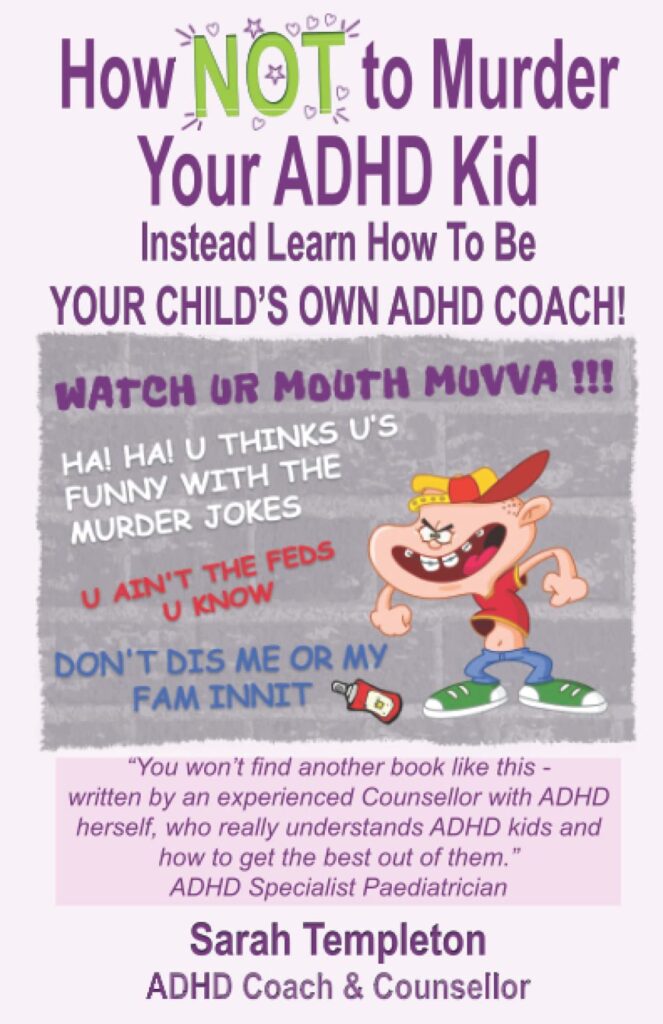
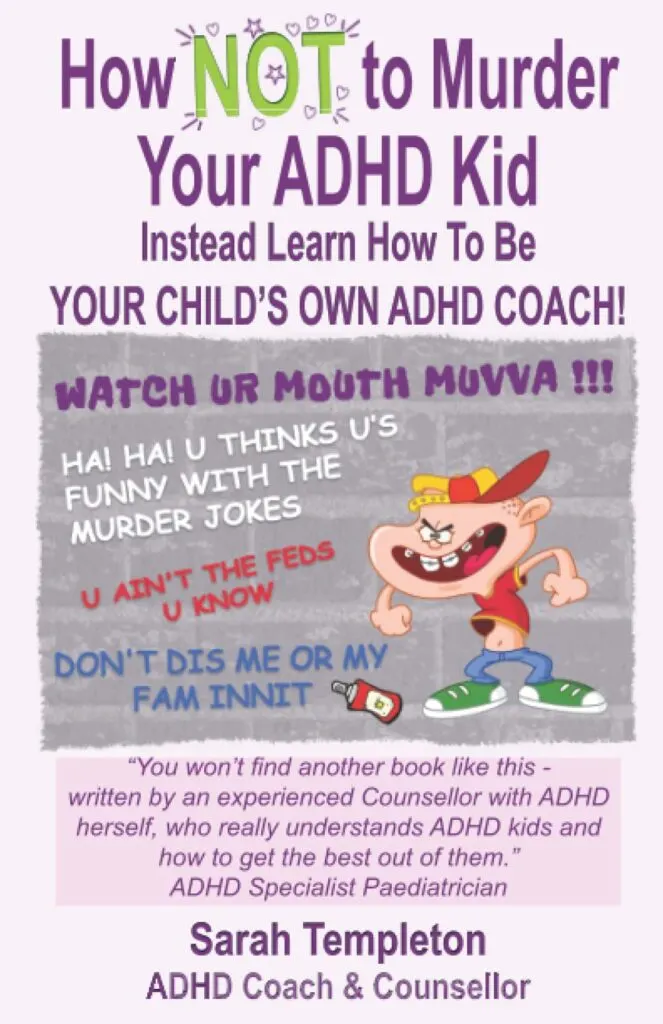
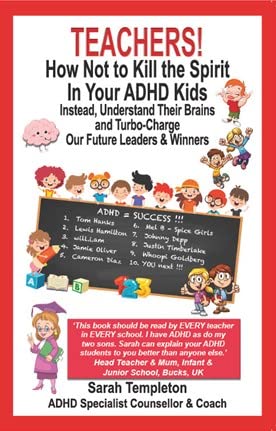
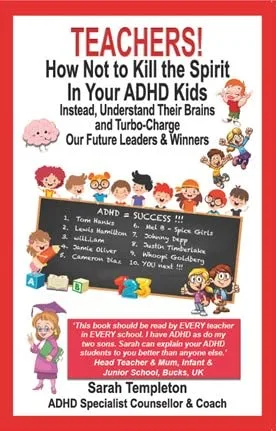
On a more personal note, RSD is one of the key aspects of ADHD that I find difficult to manage. It wasn’t until I was diagnosed that I realised just how much it had affected me throughout my life. It seems strange that it isn’t part of the diagnostic spectrum for ADHD. Considering it is such a challenging part of the neurodivergent brain, it would make sense to include it. This, coupled with how dramatic an effect it can have on the mental health of ADHD kids and adult, make it even stranger that it isn’t considered at an early stage in anyone’s ADHD journey.
Why not check out some of the other ADHD resources for parents that we have on the site? We’ve also got other special needs articles too. We are aware that RSD is one of a few different ways that ADHD shows up in our children, and in adults too, alongside symptoms such as negative self-talk, procrastination, and sleep problems, . We hope that some of these articles can assist you. If there are any other ideas that you have for content on this, then do let us know, and we can see what else we can do for you around this topic area. We are always open to fresh ideas for the site, and we would love to hear from you if you can spare the time.
Other articles on KiddyCharts relevant to Special Needs
Here are some articles and resources that are helpful to those caring for children with special needs.
How to explain autism to children #31DaysOfLearning
How to explain what autism is to children.
OCD and autism: Understanding the difference in children
Understanding the differences between OCD and Autism.
10 things for parents of special needs children to do when they are stuck indoors
Help to come up with activities if you are stuck indoors with your child.
Parenting a Special Needs Child: 5 top tips
Some top tips from a parent of a child with special needs on how to cope.
Check these articles offsite out as well:
Other resources from the internet focused on support in Special Needs
Here are some more ideas for supporting children with Special Needs.
12 Activities to Promote Eye Contact
Encouraging eye contact is a great way to assist with promoting improvements in social skills.
5 Clean Science Experiments for Autistic Children
Sometimes children with autism don't like getting too messy - so here is some science fun for them!
48 Quick Sensory Bags to Make for Your Kids
Sensory play is excellent for supporting children with special needs, so here are loads of different ideas for you.
As always, do subscribe to our newsletter for more great articles. In particular, we will be covering much more on ADHD, so sign up for more help and support. Our owner, Helen Neale, is an ADHD Counsellor too, so have experience of working with both neurodivergent children and adults in her own neurodiverse-affirming practise.
Hope to see you on the site again soon.
Helen


